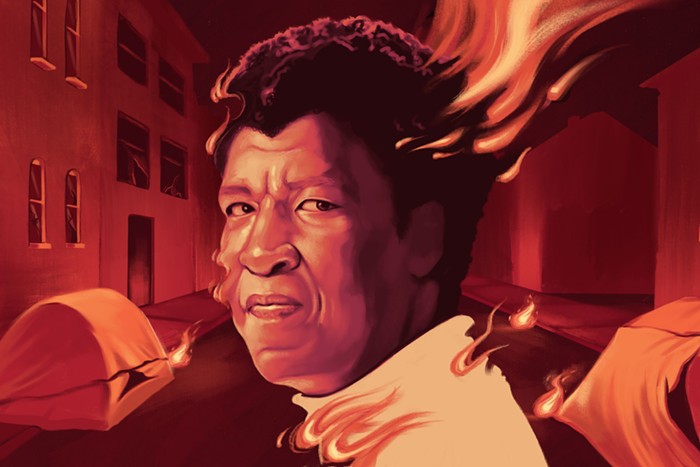
Today, writing and editing duties prevented me from getting to the poetry column until a little later than I would have liked, so I hope you'll permit me a brisk introduction.
Yesterday we did a poem about snow and sex. Today we're doing a poem about deer and sex. You can find the poem, "Hymn," over at the Poetry Foundation, but you can also find it in Carl Phillips's 2002 banger, Pastoral.
• Phillips makes a lot of moves in this poem, but at a basic level the poem makes three turns. In the first four stanzas, the poem's speaker attempts to home in on the object of his desire. He considers and dismisses various objects—the shadow, a stag, the stag's antlers, the twigs of a tree, the spaces between the twigs of a tree, and the notion of "rescue"—and comes to the conclusion that many serious romantics come to, which is that the object of his desire is not to find or be a savior but rather desire itself. "Less the rescue. / More, always, the ache / toward it," Phillips writes in one of the poem's most memorable stanzas. Hear how those pauses in "more, always, the ache" force you to act out the plodding nature of desire's endless pilgrimage? That's good stuff when done right, people!
• Anyhow, Phillips's speaker then compares two expressions of this ache, one bodily and one spiritual. He associates death with routine one-night stands, nights going into a "strange room entered not for prayer / but for striking / prayer’s attitude," if you catch his drift. But desire itself he associates with God, or "any steep / and blue water, things that are always / there, they only wait // to be sounded." Hear how a reader literally has to wait to sound the words "to be sounded" due to that nice stanza break after the word "wait?" That's Phillips still doing the endless pilgrimage thing, and it's still good.
• After making that comparison, the speaker closes with a description of two fears. The first fear is a concern for how long he'll be trapped in this cycle of falling in love with people, and the second is the problem that haunts all love and all love poems: who cares? Though pining for someone feels like the biggest and most important thing in the world for the piner, the fact is that pining is incredibly common ("all the unglittering other dropped stones"), and so it's not really that big of a deal! A bummer, but a truth, and so a service.
• One of the million things to note about this poem is the way Phillips queers ancient poetry tropes. A trained reader can't see a deer in a poem without thinking of the long history of deer in "Western" literature, a sort of classic hunter/hunted dynamic dude poets used to describe their affection for women. (See for reference Petrarch's "Una Candida Cerva," which Sir Thomas Wyatt turned into the arguably more famous poem "Whoso List to Hunt, I Know where is an Hind.") In "Hymn,"—which of course chimes with "him"—that deer isn't a doe, but a "stag." But no matter who we're boning in those strange rooms, we all end up on that beach, "unglittering other dropped stones," alone together.



















